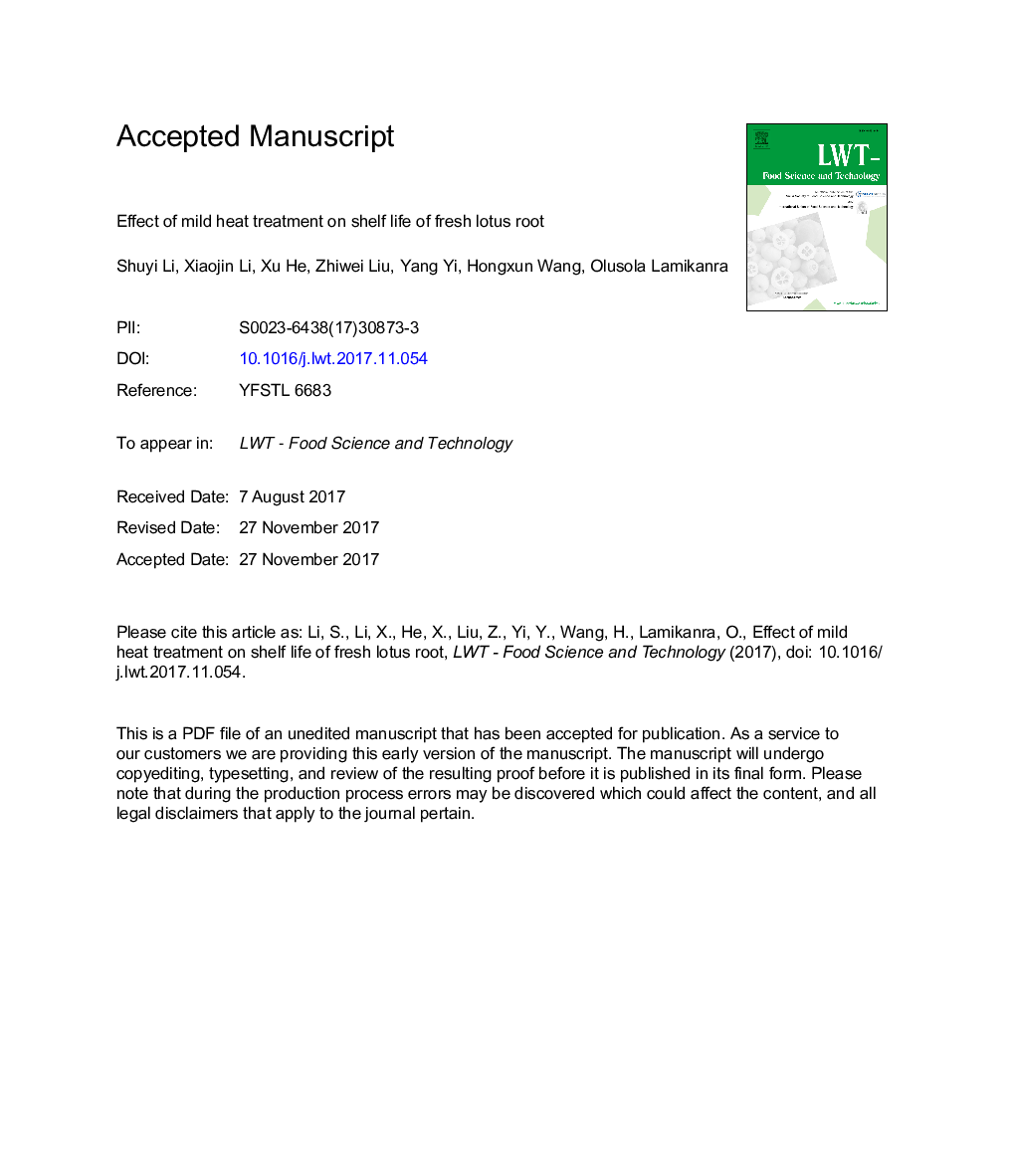| Article ID | Journal | Published Year | Pages | File Type |
|---|---|---|---|---|
| 8891447 | LWT - Food Science and Technology | 2018 | 28 Pages |
Abstract
Heat treatments of fresh lotus root (Nelumbo nucifera G.) at 40, 50 and 60 °C effectively prevented moisture loss, browning and microbial growth but increased soluble solids, total volatile compounds and firmness during storage at 25 °C for 15 d (p < 0.05). Polyphenol oxidase (PPO) and peroxidase (POD) activities and PPO electrophoretic band intensities (100 kDa) were minimally affected by the treatments. Results indicate that enzyme deactivation is not the dominant factor in the inhibition of browning that occurred during the storage of heat treated tubers and that other factors such as heat-induced substrate modifications could significantly contribute to this effect. Peroxidase heat shock proteins (Hsp) were detected at 60, 70 and 120 kDa in treated samples. The enhanced Hsp protective response and firmness retention in 60 °C treated samples indicate that this is the optimum treatment temperature for improving lotus root postharvest storage quality and shelf life.
Related Topics
Life Sciences
Agricultural and Biological Sciences
Food Science
Authors
Shuyi Li, Xiaojin Li, Xu He, Zhiwei Liu, Yang Yi, Hongxun Wang, Olusola Lamikanra,
